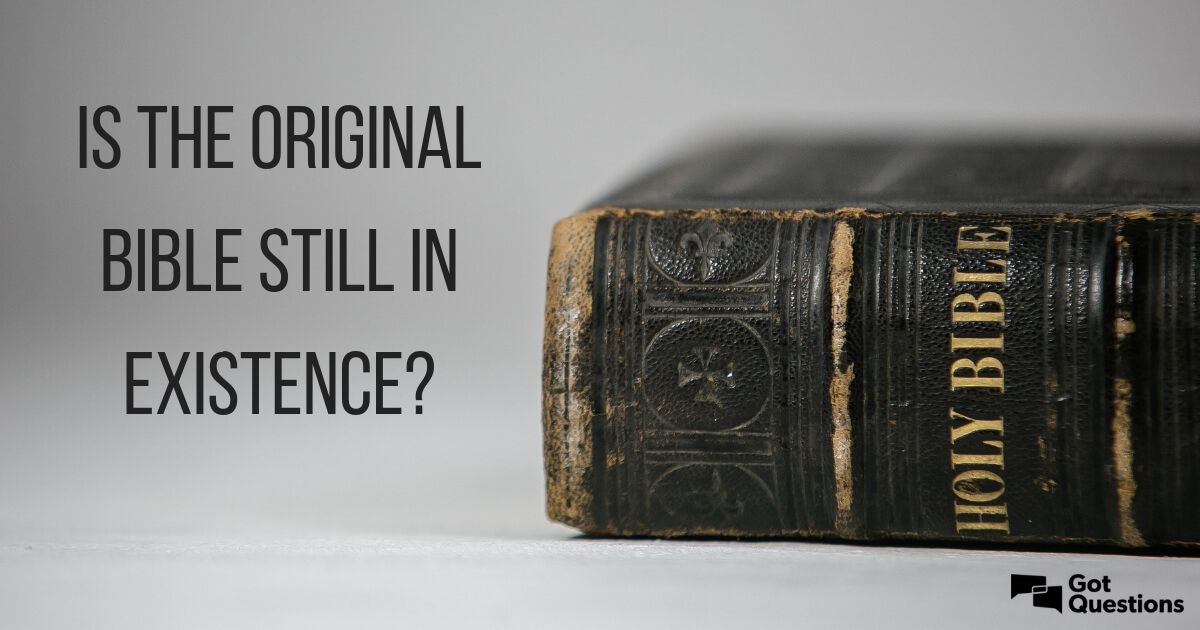The question “How old is God according to the Bible?” can be surprising for many. The Bible tells us that God is eternal, meaning He has no beginning or end. Unlike humans, who experience time and grow older, God is not limited by time. He created everything, including time itself. This means that God does not age or grow old. His existence goes beyond our understanding of age and years.
But how can someone exist without aging or having a start? We often think of everything in terms of time: birth, growth, and death. The idea of eternity can be hard to grasp. However, the Bible explains that God exists outside of time, meaning He is not bound by the way we measure life. Understanding this can change the way we think about God’s nature.
The Bible offers several clues about God’s timeless existence. In Psalm 90:2, it says, “From everlasting to everlasting, You are God.” This verse shows that God is beyond time, without a beginning or an end. He has always been and will always be. This understanding helps us realize that time doesn’t affect God, and He is forever constant.
Direct Biblical Statements About God’s Age

Before Creation
The Bible speaks clearly about God’s existence before creation. In Genesis 1:1, “In the beginning, God created the heavens and the earth.” This verse shows that God existed before anything was made. He was not created, and He didn’t have a starting point. Before time began, God was already there, showing His eternal nature.
The Psalmist captures this in Psalm 90:2: “Before the mountains were born, or You brought forth the earth and the world, from everlasting to everlasting, You are God.” Here, it is clear that God was present long before creation came into being. Time itself began with His command, yet He existed long before it started.
Eternal Existence
God’s eternal existence is repeated throughout Scripture. In Isaiah 57:15, God is described as “the High and Lofty One who inhabits eternity.” This shows that God’s very home is eternity. He does not live in a timeline like humans but transcends all time and space.
In Revelation 1:8, God says, “I am the Alpha and the Omega, who is, and who was, and who is to come.” This statement further proves God’s eternity, emphasizing that He is not limited by past, present, or future. God has always been and will always be.
No Beginning or End
God’s nature of having no beginning or end is found in various verses. In Revelation 22:13, God says, “I am the Alpha and the Omega, the First and the Last, the Beginning and the End.” This shows God as timeless without a start or finish.
Psalm 90:2 also highlights this truth: “From everlasting to everlasting, You are God.” It is clear from these words that God stands outside of time. While everything else has a starting point, God is self-existent and has no end. He is the eternal Creator, unaffected by the passage of time.
Understanding Time in the Bible
God’s Creation of Time
In the Bible, time is portrayed as part of God’s creation. In Genesis 1:1, the Bible begins with, “In the beginning, God created the heavens and the earth.” This marks the start of everything, including time itself. Before this moment, there was no concept of time. God set the laws of time in motion, giving structure to the universe.
Time was made for us, His creation, to experience and follow. While God is eternal and not bound by time, He created it to govern the world. The very first moments of creation were marked by God’s command that brought time into existence.
Creation of Time Markers
God established time markers to help humanity understand the flow of time. In Genesis 1:14, He created “lights in the sky to separate day from night,” and these lights would serve as markers for days, seasons, and years. The sun, moon, and stars were designed to guide us in our measurement of time.
These markers are essential for human life. By defining time, God gave us the means to organize our lives, know when to plant and harvest, and celebrate seasons. They serve as physical signs of the passage of time and are reminders of God’s careful design.
God’s Relationship to Time
God’s relationship with time is unique and different from ours. Psalm 90:4 tells us, “For a thousand years in Your sight are like a day that has just gone by.” This verse highlights that God perceives time much differently. To Him, time is not a limiting factor. He sees all of time—past, present, and future—at once.
In contrast to our linear experience of time, God exists beyond it. He is not affected by the passing of days or years. His actions are always perfect, whether in the past or the future. This timeless nature of God calls us to trust that He is in control of all moments in time.
Biblical Timeline and God’s Existence

Before Creation
Before the beginning of time, God existed alone in eternity. In Genesis 1:1, the phrase “In the beginning” marks the starting point of creation, but before that, there was no time. God existed beyond the constraints of time, with no beginning or end. Psalm 90:2 says, “From everlasting to everlasting, You are God,” emphasizing that God’s existence transcends time itself.
This eternal existence of God has no origin or end, meaning He is always present, outside of any timeline. The Bible teaches that God has always been, and His existence is not bound by the passage of days or years. He is the eternal Creator, independent of the world He formed.
Creation Week
During the creation week, God initiated the process of shaping the world we live in. Genesis 1 gives a clear sequence of days in which God created the heavens, the earth, light, plants, animals, and humanity. Each day of creation marked a new beginning, setting the structure of time into motion.
On the seventh day, God rested, establishing the rhythm of time. This creation week was not just about creating the earth but also about creating time itself. By setting apart days, God showed humanity the importance of time and rest. This week stands as a reminder of God’s power and His divine plan for the world.
Throughout History
From the beginning of creation, God has been active in guiding history. The Bible chronicles God’s involvement with humanity, from Adam and Eve to the patriarchs, kings, and prophets. He established covenants and provided guidance through His word. Throughout history, God’s presence has been constant, fulfilling His promises and intervening at key moments.
God’s relationship with history is not passive. He is sovereign over all events, shaping the course of human actions to fulfill His divine purposes. His plans unfold in the timeline of human history, proving that God is not just a Creator but an active, involved presence in the world.
Future Eternity
The Bible also speaks about a future eternity where God will continue to exist beyond time. Revelation 21:1-4 describes a new heaven and a new earth where God will dwell with His people forever. There will be no more pain, death, or time constraints. This future eternity will be a perfect existence, free from the limitations of our current world.
God’s plan for eternity goes beyond our understanding of time. Just as He existed before creation, He will continue to exist forever, and His eternal nature assures us that His promises will never fade. In the future eternity, time will no longer matter only God’s perfect presence will remain.
Related Guide:
Age 33 Spiritual Meaning (Understanding Life’s Path)
God’s Self-Revelation About His Age
The Meaning of “I AM”
When God revealed Himself to Moses, He identified Himself as “I AM” (Exodus 3:14). This statement carries profound significance, expressing God’s eternal existence. The name “I AM” means that God is self-existent and has no beginning or end. Unlike created beings, God simply “is,” emphasizing that He is timeless and unchanging.
The “I AM” declaration reflects God’s nature as being outside the limitations of time. It speaks of His eternal presence, existing in every moment, and never bound by the constraints that define human life. This name also shows that God is always present He is not limited by past or future.
Hebrew Name Explanation
In the Hebrew language, God’s name “Yahweh” is closely linked to the phrase “I AM.” The name “Yahweh” is derived from the verb “to be,” signifying God’s unchanging nature. This name implies that God is the eternal, self-sufficient one who exists independently of all creation. It highlights that His existence is not defined by time or space but by His own divine nature.
The name “Yahweh” reveals that God’s age is not measured like human age. He is the eternal “I AM,” and His name signifies that He was, is, and always will be. This powerful name reminds us that God exists beyond our understanding of time and is ever-present in every era of history.
Biblical Usage
Throughout the Bible, God’s self-revelation through the name “I AM” and “Yahweh” is used to show His eternal, sovereign nature. In John 8:58, Jesus declared, “Before Abraham was born, I am,” identifying Himself with God’s eternal being. This statement confirms that God’s existence stretches beyond all human history, including before the great patriarchs.
The name “I AM” is also used in many of God’s interactions with His people, emphasizing His eternal presence. In moments of reassurance, such as when God promises to be with His people, He affirms that He is always “I AM.” This reinforces the timeless nature of God, who exists outside the limitations of human time.
Other Biblical Names Indicating God’s Ageless Nature
El Olam (עוֹלָם אֵל)
One of the Hebrew names for God that emphasizes His eternal nature is El Olam, which translates to “The Everlasting God” or “The God of Eternity.” Found in Genesis 21:33, this name highlights God’s existence beyond the boundaries of time. El Olam speaks of His timeless character, implying that He has no beginning and no end. This title reminds us that God’s nature is not limited to the constraints of our world but transcends all time, making Him the eternal, unchanging Creator.
By using the name El Olam, the Bible affirms that God’s power, presence, and authority exist forever. This name is a declaration that God has always been and will continue to be present in every era, unaffected by time or change.
Ancient of Days
In the book of Daniel, God is referred to as the “Ancient of Days” (Daniel 7:9), a title that emphasizes His eternal wisdom and age. This name portrays God as the ageless ruler who has existed long before the world and will continue long after. The term “Ancient” in this context does not imply weakness or decay but rather conveys His supreme, unchanging nature.
“Ancient of Days” also reflects God’s infinite knowledge and authority over all time. He is the eternal judge, whose reign is not limited by any age or season. This title assures believers that God remains steadfast and sovereign, regardless of the passage of time.
Common Questions About God’s Age
Does God Have a Beginning?
A common question many ask is, “Does God have a beginning?” According to the Bible, God has no beginning. He is eternal and exists beyond the concept of time. In fact, He is the Creator of time itself, which means He cannot be bound by the same limitations we experience. God’s existence is not measured by time as ours is. He has always been, and He always will be.
This belief in God’s eternal existence is a foundational concept in understanding His nature. Unlike the created universe, God’s life has no start or end. He is self-existent and eternal.
Biblical Evidence
The Bible provides clear evidence of God’s eternal nature. In Psalm 90:2, it is written, “Before the mountains were born or You brought forth the earth and the world, from everlasting to everlasting, You are God.” This verse emphasizes that God existed before the creation of the world and will continue to exist after it. There is no moment in history where God began to exist.
Additionally, Revelation 1:8 declares, “I am the Alpha and the Omega,” confirming that God is the beginning and the end, and He transcends all time. These passages reinforce the biblical truth that God is without origin.
Scriptural Support
The Bible offers consistent scriptural support for the idea that God has no beginning. In John 1:1, “In the beginning was the Word, and the Word was with God, and the Word was God.” This passage speaks to the eternal nature of Jesus Christ, affirming that He is one with God and existed before creation.
Further, in Isaiah 43:10, God says, “Before Me no god was formed, nor will there be one after Me.” This statement highlights the uniqueness of God’s eternal existence, affirming that no other being shares His timeless nature. Through such scriptures, the Bible makes it clear that God has always been and will never cease to be.
Can We Calculate God’s Age?
Beyond Time
Calculating God’s age is impossible because He exists beyond the limits of time. Time is a concept created by God to govern the world He made. As the Creator of all things, including time, God is not bound by it. He is not confined by years, days, or ages. The very nature of God transcends our understanding of time, making it impossible for us to apply human measurements to His existence.
Since God is eternal, there is no “beginning” or “end” to His life, making age irrelevant in the way we think of it. He is the same yesterday, today, and forever, unaffected by the passage of time.
Biblical Perspective
From a biblical perspective, God’s age cannot be calculated. The Bible teaches that God is eternal, with no start or finish. Psalm 90:2 states, “Before the mountains were born or You brought forth the earth and the world, from everlasting to everlasting, You are God.” This passage affirms that God’s existence is beyond time and cannot be measured like human life.
In Revelation 22:13, God declares, “I am the Alpha and the Omega, the First and the Last, the Beginning and the End.” These verses show that God is not subject to the limitations of time. For the Bible, God’s age is not something to measure; it is a reminder of His infinite and unchanging nature.
Biblical Summary of God’s Age
God is Eternal
The Bible makes it clear that God is eternal and beyond the limitations of time. He has no beginning or end. In fact, God is the Creator of time itself. As the eternal Being, He exists outside the boundaries of our understanding of age and time. God is unchanging, constant, and everlasting. His existence is not measured in years, days, or centuries, but in an eternal “now” that transcends the concept of time.
This eternal nature of God is foundational to understanding His divine essence. God does not age, grow, or decay as humans do. His existence is perfectly continuous and will never end.
Biblical Proof
Scripture provides undeniable proof of God’s timeless nature. In Psalm 90:2, it is written, “From everlasting to everlasting, You are God.” This passage clearly states that God’s existence spans beyond time, from eternity past to eternity future. Furthermore, Revelation 1:8 declares, “I am the Alpha and the Omega,” emphasizing God’s infinite nature and His eternal presence.
Another powerful proof comes from John 1:1, where it says, “In the beginning was the Word, and the Word was with God, and the Word was God.” This verse shows that God was present before the start of time, affirming His existence outside of any created timeline.
Key Truth
The key truth about God’s age is that He has no age. He exists outside of time, without a starting point or an end. While humans are born, live, and eventually pass away, God’s eternal nature remains unchanged. This timelessness is essential to understanding His divine power and sovereignty. God is not limited by time, and His existence is not subject to the passing of years.
This truth reminds us that God is infinitely greater than anything we can comprehend. His timelessness is a testament to His supremacy over all things, including time itself.
FAQ’s
Does the Bible say how old God is?
No, the Bible reveals that God is eternal and has no beginning or end.
Is God bound by time?
No, God exists outside of time and is not affected by its passage.
What does “I AM” mean for God’s age?
“I AM” signifies God’s eternal existence—He has always been and always will be.
How can God have no beginning?
God is self-existent, meaning He was never created and has no start.
Does God’s age matter in the Bible?
No, God’s age is irrelevant as He is timeless and beyond human measurement.
conclusion
The Bible teaches that God’s age cannot be measured by human standards. He is eternal, existing outside the limitations of time. From the very beginning of creation, God has been present, with no beginning or end. Scripture such as Psalm 90:2 and Revelation 1:8 makes it clear that God’s nature is beyond our understanding of age, as He is the Alpha and the Omega, the eternal Creator.
This timelessness is central to God’s divine essence. His eternal existence assures us of His unchanging nature and supreme power. Time does not define Him, and His promises remain constant throughout history, reminding us of His eternal presence and sovereignty over all creation.

With five years of experience as a content writer, I specialize in creating engaging website content that drives traffic and builds brand loyalty. My expertise lies in crafting clear, compelling narratives that connect with audiences and optimize for search engines. I’m passionate about helping businesses articulate their unique value through well-researched blog posts, persuasive web copy, and impactful social media content. My goal is to transform ideas into captivating stories that not only inform but also inspire action.







